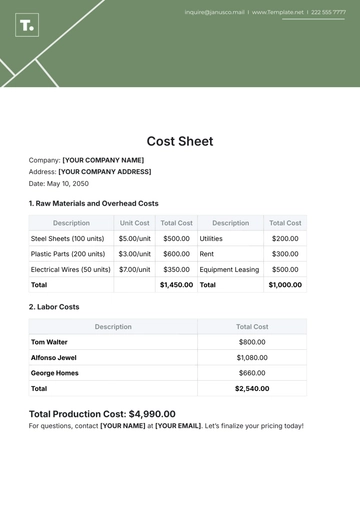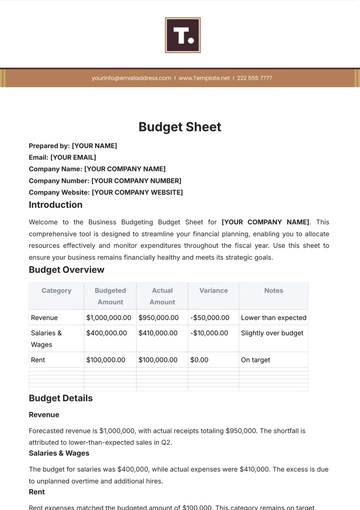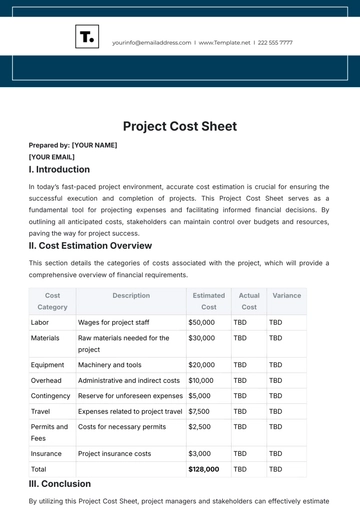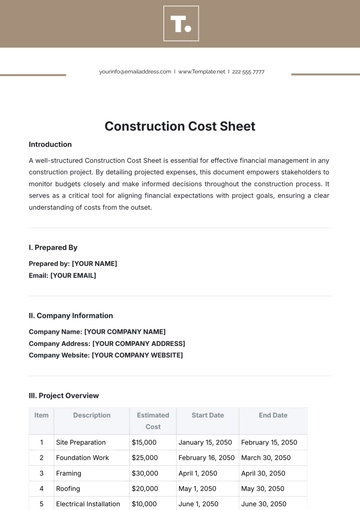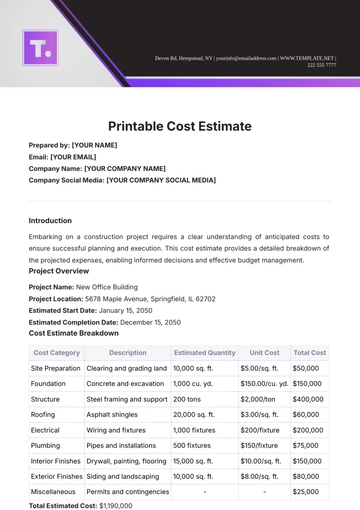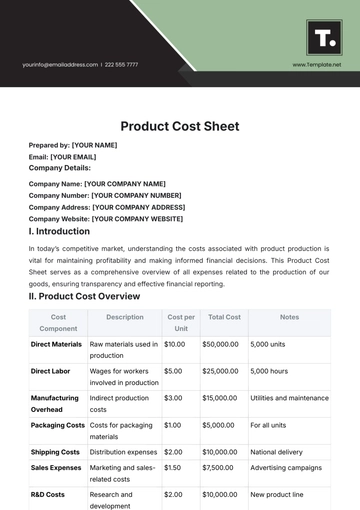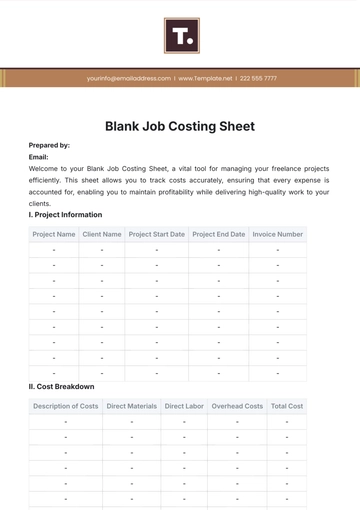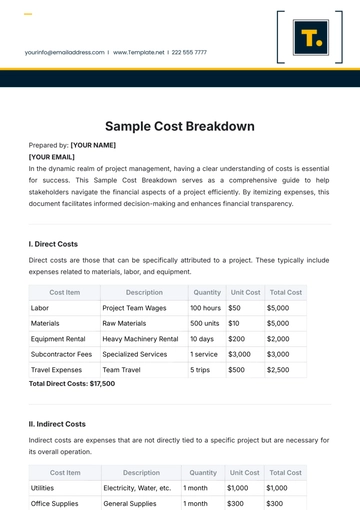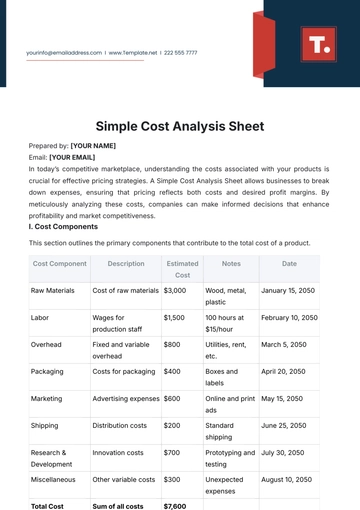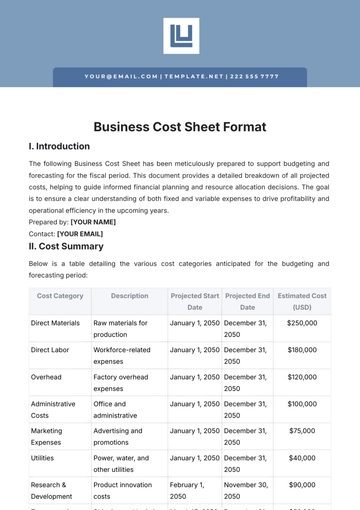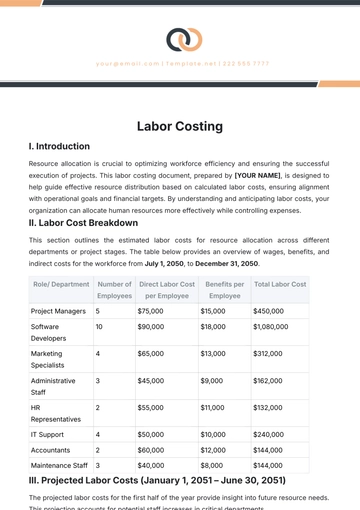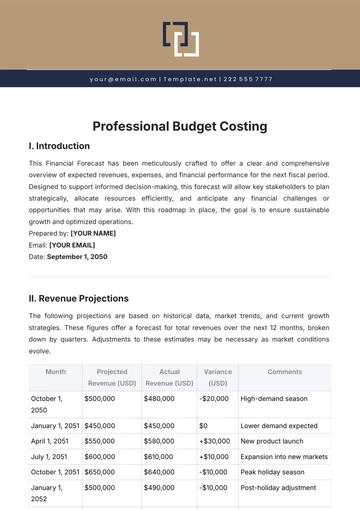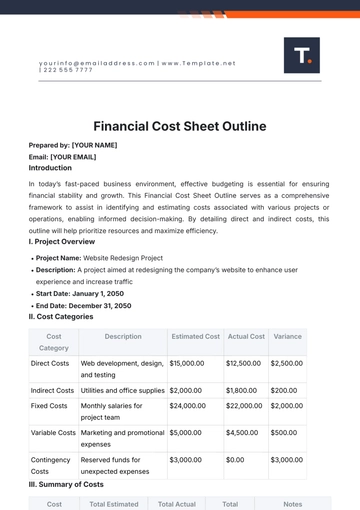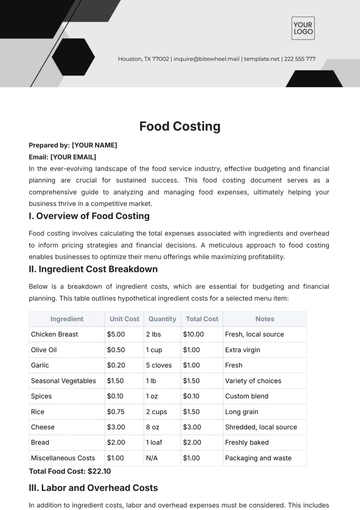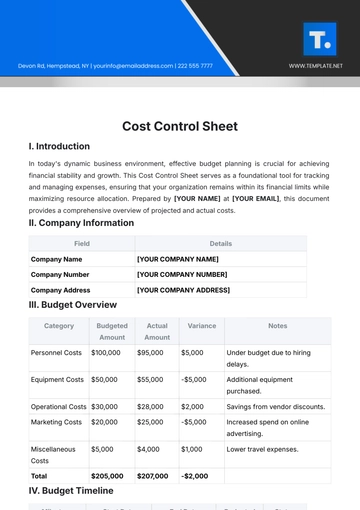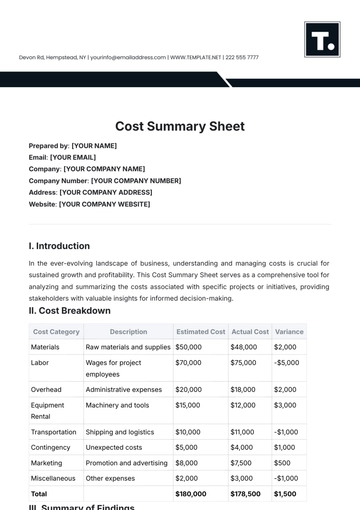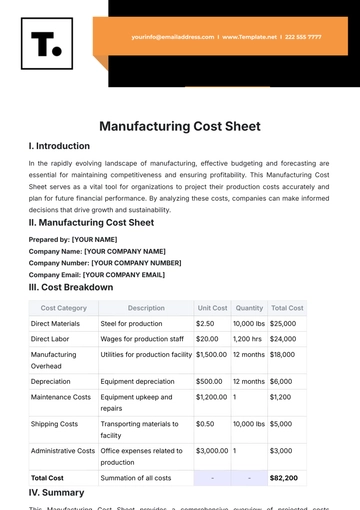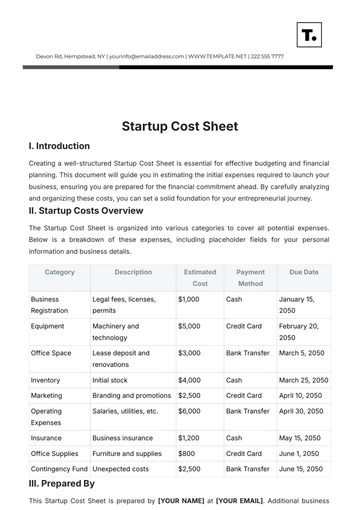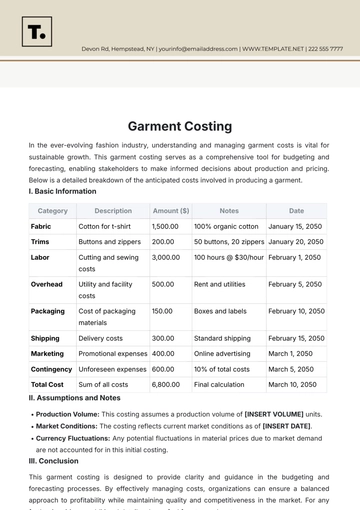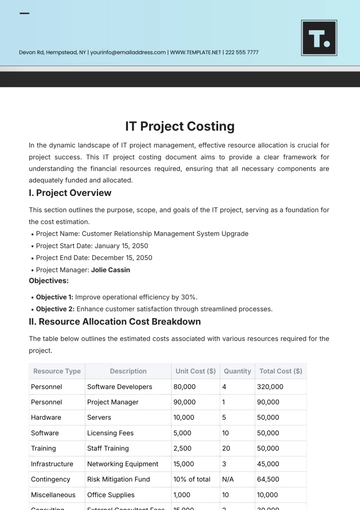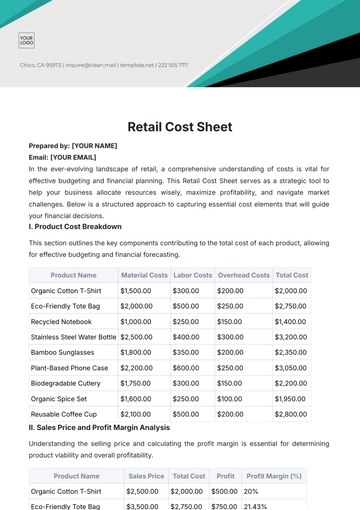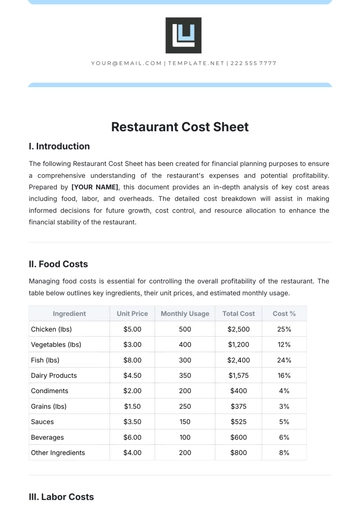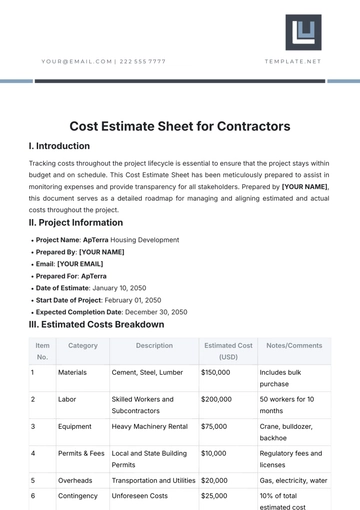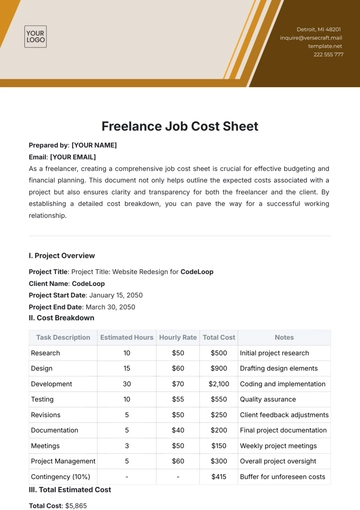Free Economy Fact Sheet
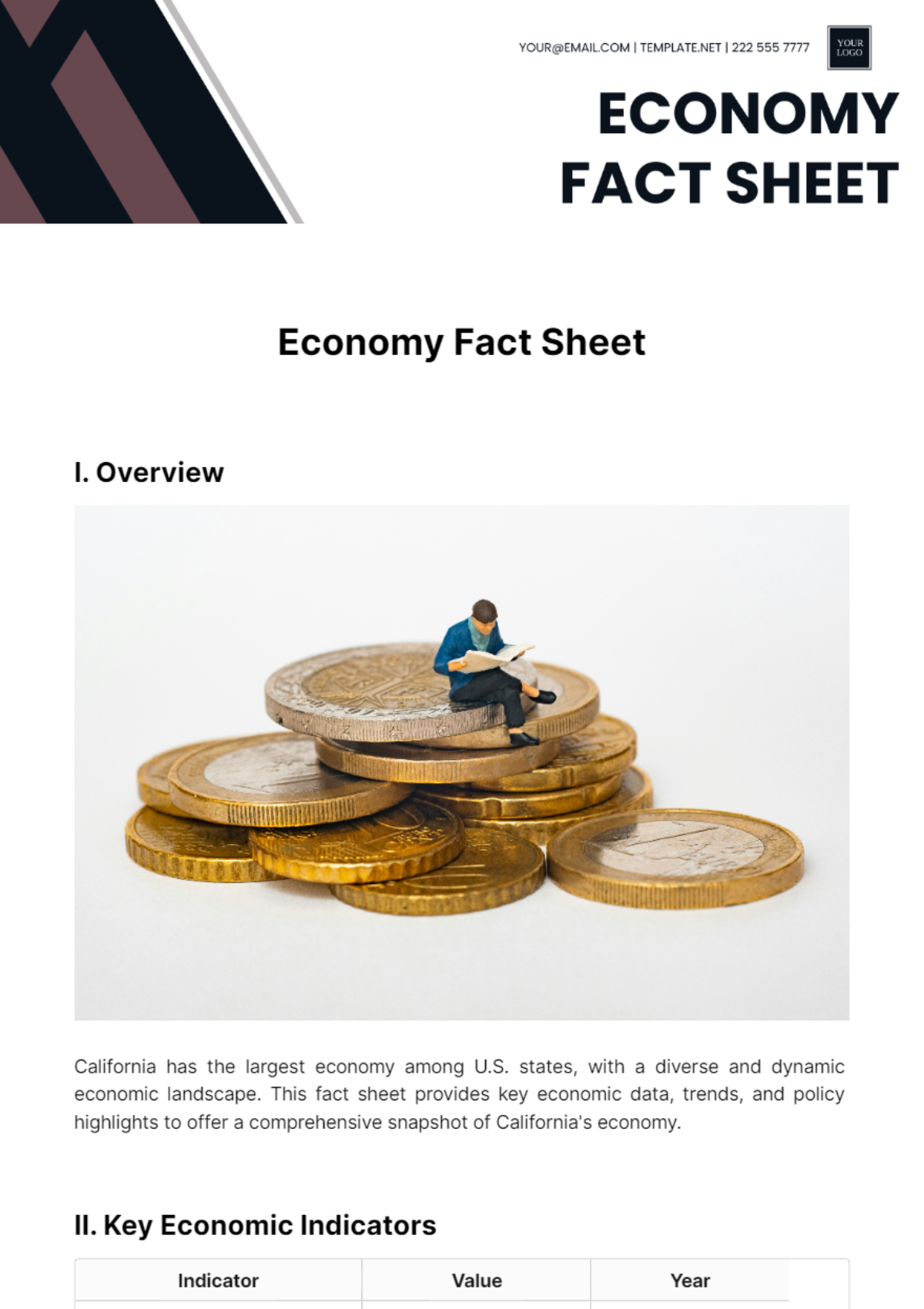
I. Overview

California has the largest economy among U.S. states, with a diverse and dynamic economic landscape. This fact sheet provides key economic data, trends, and policy highlights to offer a comprehensive snapshot of California's economy.
II. Key Economic Indicators
Indicator | Value | Year |
|---|---|---|
Gross Domestic Product (GDP) | $3.4 trillion | 2050 |
GDP Growth Rate | 3.7% | 2050 |
Unemployment Rate | 4.3% | 2050 |
Inflation Rate | 3.2% | 2050 |
III. Sector Analysis
Primary Sector: California's agriculture sector is one of the largest in the U.S., accounting for 10% of the state's GDP. Major products include fruits, vegetables, and dairy.
Secondary Sector: Manufacturing and production represent 20% of the state's GDP. Key industries include technology, aerospace, and automotive.
Tertiary Sector: The services sector is the largest, contributing 70% of GDP. It encompasses technology, entertainment, finance, healthcare, and tourism.
IV. Employment and Wages
Statistic | Value | Year | Trend |
|---|---|---|---|
Employment Rate | 95.7% | 2050 | Rising |
Average Annual Wage | $65,000 | 2050 | Rising |
Minimum Wage | $15.50/hour | 2050 | Increasing |
Labor Force Participation | 67% | 2050 | Stable |
V. Fiscal Policy

California's fiscal policy focuses on infrastructure investment, education, and social services. Key highlights include:
Budget Deficit/Surplus: Deficit of $10 billion in 2050
Public Debt: $430 billion, representing about 12% of GDP
Major Expenditure Areas: Education, healthcare, and transportation
Tax Policy: Progressive tax rates, with a top income tax rate of 13.3%
VI. Monetary Policy
As a U.S. state, California's monetary policy is governed by the Federal Reserve. Key measures include:
Interest Rates: Federal Reserve rates are currently 4% (2050)
Quantitative Easing/Contraction: The Fed has gradually tapered quantitative easing
Currency Stability: The U.S. dollar is stable against other major currencies
VII. Trade and External Relations
Statistic | Value | Year | Trend |
|---|---|---|---|
Total Exports | $500 billion | 2050 | Rising |
Total Imports | $480 billion | 2050 | Stable |
VIII. Key Challenges and Opportunities
Challenges: California faces economic challenges like housing affordability, homelessness, and wildfires, which impact the economy and infrastructure.
Opportunities: California's technology sector, renewable energy initiatives, and film and entertainment industries offer significant opportunities for growth and innovation.
IX. Recent Developments and Future Outlook

Recent developments in the California economy include large-scale investments in electric vehicles, significant technological advancements, and increased funding for climate resilience projects. The future outlook is generally positive, with an expected GDP growth rate of 3.5% to 4% over the next few years.
- 100% Customizable, free editor
- Access 1 Million+ Templates, photo’s & graphics
- Download or share as a template
- Click and replace photos, graphics, text, backgrounds
- Resize, crop, AI write & more
- Access advanced editor
An Economy Fact Sheet is a concise document that presents key information about the economic status, trends, or policies of a particular region, country, or industry. It generally includes relevant data, statistics, and brief analyses. It’s designed to be easily understood, offering a quick overview of complex economic topics.
You may also like
- Attendance Sheet
- Work Sheet
- Sheet Cost
- Expense Sheet
- Tracker Sheet
- Student Sheet
- Tracking Sheet
- Blank Sheet
- Information Sheet
- Sales Sheet
- Record Sheet
- Price Sheet
- Plan Sheet
- Score Sheet
- Estimate Sheet
- Evaluation Sheet
- Checklist Sheet
- Bid Sheet
- Call Log Sheet
- Bill Sheet
- Assessment Sheet
- Task Sheet
- School Sheet
- Work From Home Sheet
- Summary Sheet
- Construction Sheet
- Cover Sheet
- Debt Spreadsheet
- Debt Sheet
- Client Information Sheet
- University Sheet
- Freelancer Sheet
- Bookkeeping Sheet
- Itinerary Spreadsheet
- Scorecard Sheet
- Run Sheet
- Monthly Timesheet
- Event Sheet
- Advertising Agency Sheet
- Missing Numbers Worksheet
- Training Sheet
- Production Sheet
- Mortgage Sheet
- Answer Sheet
- Excel Sheet
